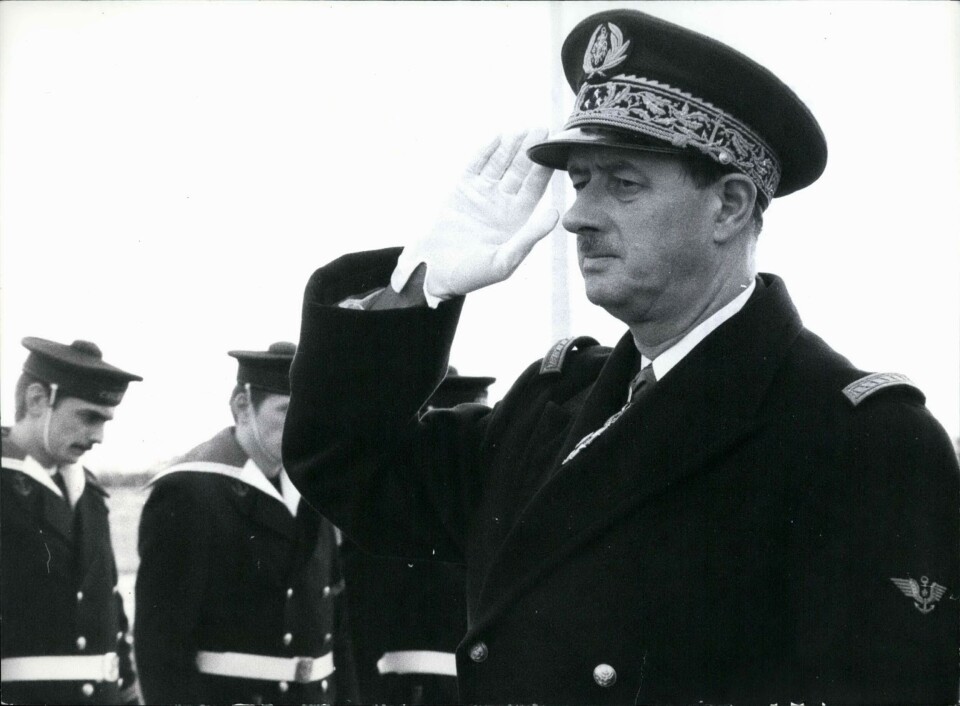-
Weather alerts raised as violent storms forecast to sweep France
South and central areas are set to be the most affected
-
Entry/Exit System: key points to note about the new rules
New checks start phasing in at Schengen borders on October 12, 2025
-
Entry/Exit System: no to health insurance proof for travel in France
Proof of medical cover is not required, contrary to claims
Admiral Philippe de Gaulle, son of General de Gaulle, dies age 102
Former soldier, naval officer, and politician bore a striking resemblance to his father

Philippe de Gaule, the son of French Resistance leader and former president Charles de Gaulle, died last night (March 12), aged 102.
He died in Paris. The cause of death has not been announced.
Despite his former roles as an admiral, soldier, and politician, he often lived in the shadow of his father due to the immense presence the latter had in post-war France.
Philippe de Gaulle released a controversial two-volume book titled De Gaulle mon père in 2003 and 2004, which became a bestseller in France.
However it angered some historians for its narratives and inaccuracies.
He is succeeded by his four children. The eldest, Charles de Gaulle II, recently made headlines due to his support for Russian president Vladimir Putin.
Read more: Grandson of war hero Charles de Gaulle wants Russian citizenship
Storied life of war hero
Born in Paris in 1921 into a military family, Philippe de Gaulle was destined to join the forces in some capacity, and was already in the French navy at the onset of World War Two.
Some sources claim he was named after Marshal Philippe Pétain – later the leader of Vichy France during World War Two – however others say he was named after a member of the de Gaulle family.
Independently of his father’s famous radio speech – which he claims he did not hear when it was broadcast – he escaped to the United Kingdom, where he joined the Free French forces and fought in naval battles along the English Channel.
He saw active combat on the ground as part of the liberation of France, in Paris and the Vosges.
During the liberation of the capital, he went unarmed to negotiate the surrender of German troops holed up at the Palais Bourbon (where France’s National Assembly meets), saving the historical area from any destruction.
He returned to the naval forces after the war, rising the ranks and eventually being promoted to admiral in 1980, before retiring in 1982.
He also had a career in politics, serving as a Senator between 1986 and 2004 in various right-wing parties.
Unlike his father, however, his influence on French politics remained limited, and he did not climb the ranks of the parties he was involved with.
Read more: ‘France is no left-wing country - it is time to let go of that myth’
Controversial book divided opinion
General de Gaulle died in 1970, leaving behind an enduring legacy in French political and cultural life that is still felt to this day.
Philippe de Gaulle spoke relatively little of his father, however in 2004 published an intimate portrayal of him and his personal life.
The book sold almost a million copies, captivating the public, and leading to the son giving many interviews across all platforms about his father, which some ‘Gaullists’ saw as cheapening the former president’s legacy.
Historians also took umbrage at the book, which they claimed was full of historical inaccuracies and pettiness.
One example often cited is Mr de Gaulle’s attempts to defend his father from claims of anti-semitism, by claiming many of his father’s doctors were Jewish, and proceeding to name.
Related articles
Napoleon, an ‘irritable little tyrant’? Not to us French people
























